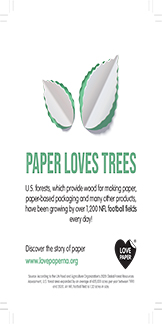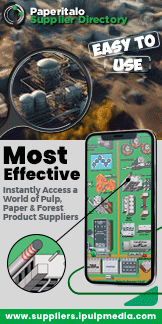Yes, I said it...waste is built into our society. "It's fiduciary" the gentry tells us. You want your investments to increase, don't you? You want jobs? You want to retire someday? Well then, wash your clothes after every use. Get the latest mobile phone because it's better than the one you have. Eat astronomical portions for every meal. Rather than fix what's broken, it's better to just buy another washer, DVD player, car, TV, vacuum cleaner, coffee maker, camera, etc. Brands will design their products to fail - it's called "planned obsolescence." They will void warranties if you try to even fix something on your own. They will string-out product improvements to trickle into the market or product over long periods of time to keep buyers buying. They will serve up products built on the lowest bid - which juices sales and profits today, but leaves the buyer with an item that gets thrown away way too soon. The whole system is designed this way and a lot of people know how to benefit from it.
I don't like it, but the game keeps me employed and provides enough of a nest egg for use in old age. I have sold my soul, along with everyone else, to go along. However, the game starts to wane on me when environmentalists call out denigrators, "culprits" you could say, accusing manufacturers of not caring for our natural resources. Accusations of malfeasance certainly deserve a closer look into what's going on, but practices and procedures are usually well within the laws and regulations. It's the consumer and their money that drives these companies because of the potential profit involved.
The craziest thing I've seen and heard over the last decade, and we all know it's a target-rich environment over that time period, is the demonization of energy production and manufacturing by people enjoying the very items that result from these industries. That's like villainizing farmers. Can you believe it...farmers! The backbone of any society. Extremely hard-working people who have to deal with extreme risks like the weather or disease outbreaks. How is it even possible to think we need less farming because the earth that's been around for billions of years can't adjust to cow farts? What's happening here?
The very corporations that tell you how important the environment is in their advertising and ESG reports will make disgusting decisions out of the other side of their mouth. They are seeking profit maximization to investors' adulation. Those very same corporations will make lightbulbs that last 2 years, but it could be 30 years for an additional 5 cents in cost. Those resources going into the product, natural or otherwise, will be consumed to extract more money from the public. It's a game of churn. Will this deplete finite resources? Oh yeah. Will this promote slavery conditions in unstable regions of the world? Uh huh. Will this accelerate the growth of waste disposal sites and garbage dumps? You betcha. They simply tell us to focus in on how much better our lives will be, and pluck that ever-so-human quality of envy with nice music and big smiles in all the commercials, ads, and pop-ups. Consumerism is a science.
Doesn't capitalism fix this through competition? It should. Entrepreneurs could, and should, pursue a 200-year lightbulb. Or a fully repairable work truck using simple parts. Or a phone with a battery you can change. I think this is how the United States of America can reassert manufacturing dominance in the world. Make high quality, long-lasting, durable, repairable, simple stuff. "Made in the USA" would be more than a trope to support-your-own and more like a badge of desirability. So why aren't the entrepreneurs doing this? Regulations. Licensing. Codes. Standards. Propaganda. Monopolies.
Do I consider myself an environmentalist? No more than most people. I'm certainly not in the "C02 is bad" camp. That's silly. Merely considering how much C02 is in our air shuts down that argument for me. Is the climate changing? Certainly, like it always has throughout time. Should I restrict my personal life? No, it wouldn't make a bit of difference except between my ears. And I will have contempt for people who feel they have a moral high ground to tell me to do so. For me, it's all about waste. I am bothered by doing things that do not contribute to growth and societal benefit. Waste to me feels like a debt. I don't want it. I don't like it. Sometimes it happens, but my ethos is to avoid or get rid of it.
What I do like in regards to environmental footprint and waste is working in the paper industry. It is the perfect industry as far as I'm concerned. Of course, I am obviously very biased. By perfect, I mean it leaves no footprint. Sure, there are so many consumer and durable products manufactured needlessly, but it is not the box, label, carton, or instruction manuals that will linger in a waste dump for hundreds of years. Our products return to their natural organic state in short order - if not directed to the recycling stream. If the environmental lobby would allow a new pulp mill to be constructed, it could be a net positive energy producer. Our organic waste streams from pulping are burned in boilers whose steam can drive gen sets and sink the heat into drying the paper. It's a beautiful cycle that only readers on Nip Impressions could appreciate, or even understand.
In a consumer-based society where the general public's energy, work ethic, and time are vacuumed up with another purchase because our brand owners tell us to do so, we get a chance to vote EVERY DAY. Not just on elections annually, but where we spend our "votes" every single day. Bud Light now understands this, and now Cracker Barrel too. I think people need to see their spending as votes. If we all see this, we can better influence the world in which we live. It is certainly not the paper industry leading us down this road, and I'm proud of that fact. Perhaps someone has a different opinion, and I would welcome the counter points.
I'll repeat it again...this is America's chance to reassert dominance in manufacturing - build high-quality, durable things that can easily be repaired. It's that simple. Levi's, Ford, Craftsman. It's been done before, we can do it again. Readers of my work (i.e. the paper industry) will gladly make the boxes to get that good stuff, made in the USA, to the conscientious consumer.
Steve Sena (stevesena@me.com) is a Cincinnati native. He obtained degrees in Paper Science & Engineering from Miami University in Oxford, OH and an MBA concentrating in Economics from Xavier University. He's worked for a broad array of leading producers, suppliers, and converters of pulp and paper grades.






















